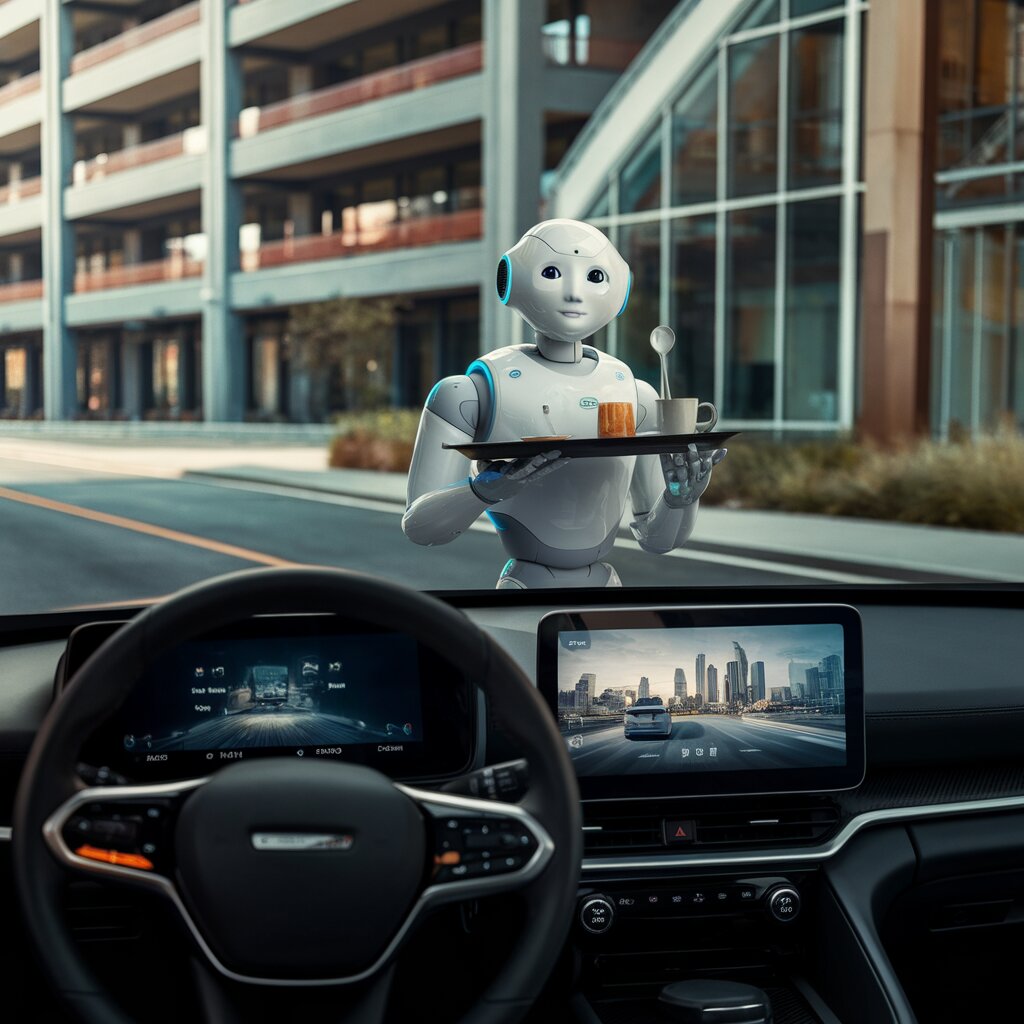In the realm of commercial aviation, the marvel of autopilot technology is something most airline passengers accept without much thought. While the plane is airborne, sophisticated systems manage the bulk of the flight operations, allowing pilots to intervene almost exclusively during take-off and landing. The lack of concern from travelers likely stems from their trust in knowing that pilots are at the helm, ready to take control should it be necessary—even if passengers can’t actually see them.
However, this acceptance doesn’t translate as smoothly to autonomous vehicles, sparking a diverse range of reactions. For many who relish the experience of driving, the thought of relinquishing the wheel to artificial intelligence might feel like a loss. Others grapple with anxiety, unsure whether they can trust technology to safely navigate bustling roads. Unlike the hidden operations within an airplane cockpit, a passenger in an autonomous car is fully aware of the sights and sounds of traffic around them, which can be daunting for the uninitiated.
Having delved deep into this technology over the years, my perspective is informed by firsthand experience. My initial encounter with a self-driving vehicle occurred in 2011 on NASA’s Ames campus, where I tested an early rendition of Google’s autonomous driving technology—what has now evolved into Waymo. Though unsafe in its infancy, the advancements made in the intervening years are profound. From my experiences with Tesla’s progressive software releases to a particularly memorable experiment with their Full Self-Driving (FSD) system, the technology continues to impress.
Recently, I tested the FSD software version 12.5.2.2 in Tesla’s Cybertruck, a distinctive experience that differed slightly from that with my Model Y. My increasing comfort with the technology even led me to attempt a seemingly audacious stunt: blindfolded and with my hands restrained behind my back, I allowed the AI to commandeer my journey. Equipped with blacked-out sunglasses to deceive the car’s computer vision system, I discovered a new layer of trust in this evolving technology—though I wouldn’t recommend others replicate my experiment.
This remarkable advancement in autonomous technology signals a near-future where such systems will receive sweeping regulatory endorsement, presenting a strong safety case that surpasses human capability. Ultimately, the appeal of regained time—time to relax, work, or engage in leisure—will allure even the most steadfast skeptics.
Parallel to advances in automotive AI is the burgeoning field of household robotics. These robots, unlike their vehicular counterparts, are generally welcomed with open arms for their potential to automate mundane chores like cleaning and laundry. The affection consumers show towards current robotic aids, such as the Roomba from iRobot, is telling. With many owners going so far as to name them out of affection, the anticipation for smarter, more capable robots continues to grow.
Imagine a day when robots, similar to those being developed by Tesla and Boston Dynamics, manage our household chores with precision and ease. This vision is rapidly approaching as evidenced by the breakthrough developments from Physical Intelligence (PI), a pioneering company founded by two academic luminaries from UC Berkeley and Stanford. Despite being a newcomer founded earlier this year, PI has quickly made waves with its advanced prototype demonstrating instrumental skills like folding clothes and organizing items—a formidable challenge due to the unpredictable nature of household tasks.
PI’s foundation model, described as artificial physical intelligence, excels in tasks necessitating fine motor skills and adaptive learning, performing duties that are staggeringly complex for machines and yet simple for humans. The incredible progress achieved by PI in under a year, coupled with staggering funding rounds raising its valuation to $2.4 billion, underscores the high stakes and expectations in the robotics frontier.
As these intelligent robots become fixtures in our homes and businesses, we’ll witness a dramatic reshaping of how we allocate our time—reveling in newfound freedoms while technology seamlessly shoulders life’s mundane burdens. When that day arrives, the only question left might be: What will you name your robot?


